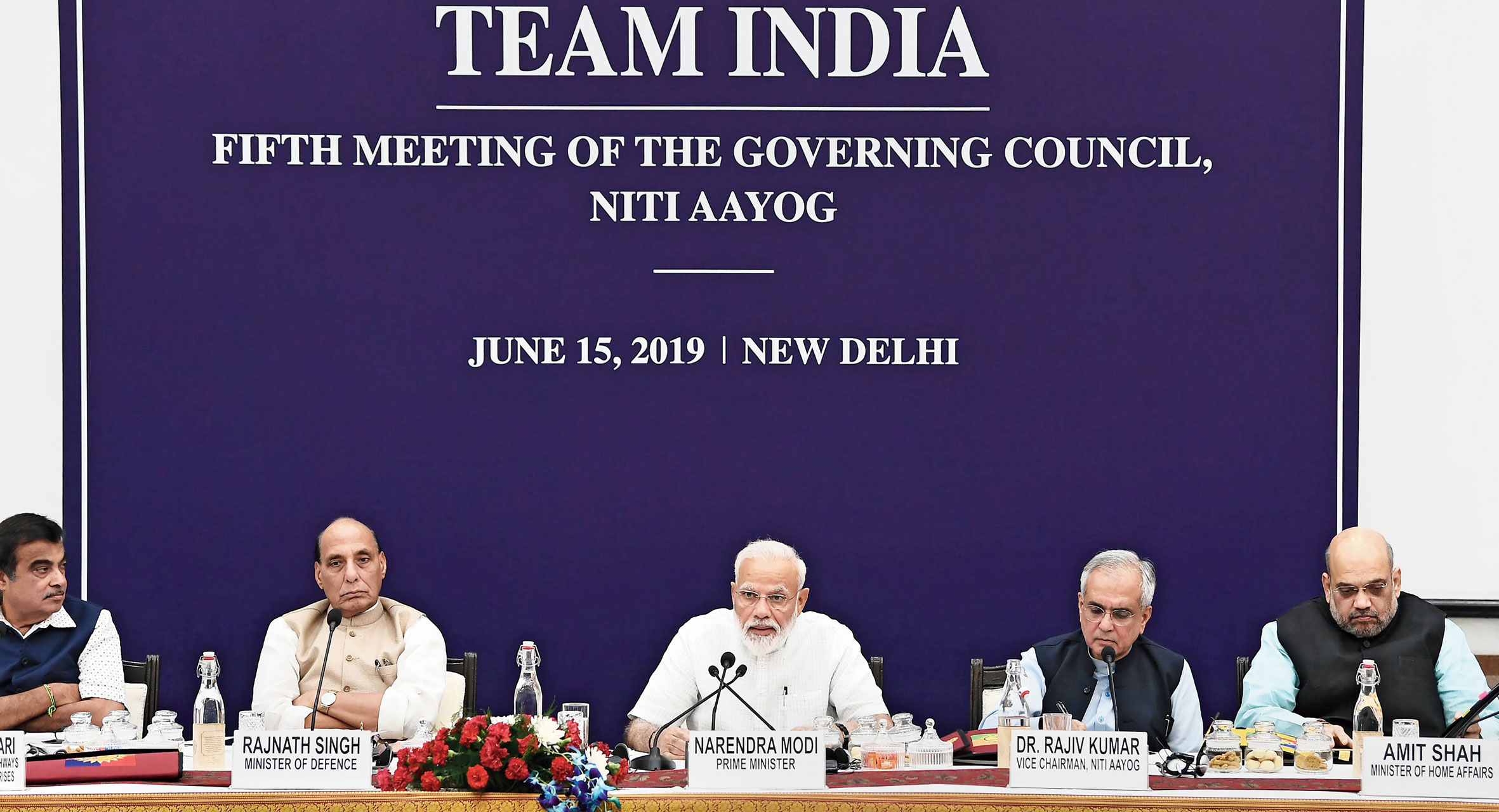Prime Minister Narendra Modi on Saturday appeared to be on campaign mode as he addressed the governing council of the Niti Aayog, underlining the need to build a “New India” and setting a grand economic target for the year 2024, when he faces re-election.
At the meeting, attended by chief ministers although Mamata Banerjee was a notable absentee, Modi recalled the recent Lok Sabha polls but did not mention his stupendous victory.
He said the polls were the world’s largest democratic exercise and now it was time for everyone to work for the country’s development.
Modi stressed the need for a “collective fight against poverty, unemployment, drought, flood, pollution, corruption and violence” --- rhetoric more typical of a poll campaign than a policy think tank.
“The Niti Aayog has a key role to play in fulfilling the mantra of ‘Sabka sath, sabka vikas, sabka vishwas (Alongside all, development for all, trust of all)’,” he said.
While “Sabka sath, sabka vikas” has been Modi’s theme since he assumed power in 2014, he has since the 2019 victory added “sabka vishwas” in an apparent effort to signal a pro-minority focus and court Muslim support.
Modi said the goal of making India a $5-trillion economy by 2024 was challenging but achievable, and asked the states to focus on their core competencies and work towards increasing the GDP right from the district level.
Niti Aayog vice-chairman Rajiv Kumar said Modi sought suggestions from the chief ministers on how to achieve the target. The size of India’s economy was estimated at $2.75 trillion at the end of March 2019.
Modi said the states should try to increase their economy by 2-2.5 times, raising the common man’s purchasing power. He said the states should periodically review the progress of their “aspirational districts” and earmark a fifth of their most backward blocks as “aspirational blocks”.
He asked the chief ministers to study their states’ export potential and promote exports.
“The Prime Minister said that the mining sector can provide significant employment opportunities... (and) that bottlenecks in operationalisation of mines continue to exist in several states.… the Niti Aayog is working on these issues,” an official statement said.
Faced with an agrarian crisis and his government’s promise of doubling farmers’ income by 2022, Modi pitched for structural reforms in agriculture that would boost private investment, strengthen the logistics and provide ample market support to the cultivators.
His government announced a high-powered committee that would include several chief ministers to work on these reforms.
Kumar said the names of the committee members would be announced in the next few days. They would be tasked with drawing up measures to boost the farmers’ income, agricultural marketing and farmland productivity. They will submit their report in two to three months.
The meeting discussed issues such as the farm distress, drought and Left-wing extremism.
Senior Union ministers and almost all the chief ministers attended the meeting, except Mamata, Telangana chief minister K. Chandrashekar Rao and Punjab’s Amarinder Singh, who was ill and sent his finance minister Manpreet Badal.
Nitish Kumar and Naveen Patnaik sought the special category status for their states, Bihar and Odisha.











